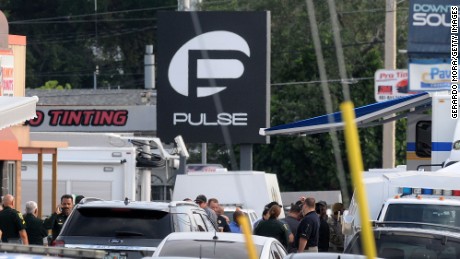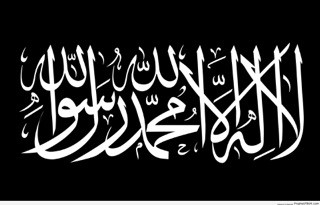GlobalView from Bishop Bill Atwood
It is hard to imagine such horrific news: 49 Dead–More than 50 wounded, some gravely. A few were wounded so critically that the death toll may continue to rise. One cannot fathom the extent of the pain––the number of families devastated––the broad circle of death and devastation. Of course, this took place in Orlando, Florida, the place that gave birth to the slogan, “The happiest place on earth.” But there was nothing happy about the terrible attack.
There was, however, something different this time––at least something new to my hearing. This time, as it surfaced that the shooter (whom I refuse to name) had called police from inside the nightclub and pledged allegiance to ISIS, there was a chorus of denunciations. All the denunciations I heard were appropriate. What was refreshing this time were the many denunciations and repudiations of the act that came from leaders in the Muslim community in America. When other terrorist attacks have occurred, I have wanted to hear such denunciations but usually heard little or nothing. Now, one Muslim leader after another is repudiating what happened. It is the most unified voice I have heard rejecting attacks. I have longed for those voices. I have urged Muslim leaders in this and other countries to speak out. It is not likely that my urging is why they are now speaking out, but I’m thankful all the same. This is a huge tidal shift, and it is very significant. It is, however, only a start.
Now, not only do there need to be denunciations of terror and violence like the ones that are pouring from Muslim leaders this time, but there is also a need for two more changes.
The first has to do with the disparity between what is said in Arabic by Islamic groups in the West and what is said in English. Thanks to many “cognates” of words that are shared with Swahili, I’m able to identify quite a few words in Arabic. I’m not able to speak more than a few words, but some things are pretty easily picked out, even from my ensconced perch of ignorance! One of my good friends is a native Arabic speaker. He has said that many materials in English at American mosques present a very different picture from what the Arabic ones do. He said that Arabic materials often speak of support for eventual Sharia Law and offer a lopsided view of the tensions in the Middle East. That discrepancy needs to be challenged openly.
Another issue that needs to be challenged is the position that was taken by many of the Muslim leaders I heard over the last few days, who essentially said, “The shooter in this terrible event is definitely not Muslim. Muslim is a religion of peace.”
The problem with that line of thinking is that all that is required to become a Muslim is “to say the Shahada with a sincere heart.” The Shahada is a saying: “There is no God but Allah, and Mohammed is his prophet.” One can often see this written on banners and even as this familiar flag:
Anyone who recites the Shahada (with presumably a sincere heart) is a Muslim. It does not require classes to learn doctrine or tithing to start giving. Just announce it. It just does not work to say, “We disagree with the way that this person is pursuing a more literal interpretation of the Qur’an.” Goodness knows that there are many verses that point toward engaging in physical conflict against those who have not embraced Islam. Worst of all are those who are viewed as Polytheists, which is how the Qur’an speaks of Christians because of their belief in God the Father, God the Son, and God the Holy Ghost. Many view our declaration of the Trinity as polytheism. Of course, we understand that there is One God of Three Persons, but that is often lost on Muslims in other lands.
There is an element of Islam in what is happening with the Fort Hood shooter, the San Bernardino shooters, the Boston bombers, and the Charleston or Orlando shooter. What they are pursuing is a literal application of Islam from centuries ago, but one that is making a resurgence. I understand the motive for seeking to dismiss the shooters/bombers as non-Muslims. Many people are afraid that if an element of Islam is present in what they do that it will result in widespread attacks against Muslims. In fact, it is entirely possible to separate the “radical Islamic terrorists” from the mainstream of Islam, but it just isn’t accurate to say that the radicals are not Muslim at all. They have fulfilled the requirements to become Muslim. There needs to be teaching and widespread group pressure to denounce violence, but we need to recognize that the plain language of the Qur’an calls for what is being done when there are people present who don’t accept Islam.
The Qur’an (virtually all Muslims would say “The Holy Qur’an” in much the same way Christians refer to “The Holy Bible.”) is divided into chapters called Surah. Within a chapter, the individual verses are listed. Consider these verses:
Surah 5:33 Indeed, the penalty for those who wage war against Allah and His Messenger and strive upon earth [to cause] corruption is none but that they be killed or crucified or that their hands and feet be cut off from opposite sides or that they be exiled from the land. That is for them a disgrace in this world; and for them in the Hereafter is a great punishment…
Or this one:
Surah 8:12 [Remember] when your Lord inspired to the angels, “I am with you, so strengthen those who have believed. I will cast terror into the hearts of those who disbelieved, so strike [them] upon the necks and strike from them every fingertip.”
Or another:
Surah 9:73 O Prophet, fight against the disbelievers and the hypocrites and be harsh upon them. And their refuge is Hell, and wretched is the destination.
There are almost 200 more similar verses. It does not make sense to say that such a world view has nothing to do with Islam. What could be said is that perhaps the majority of Muslims today would like a metaphorical interpretation of these verses, but there are many people—especially among those under 35 years old—who are inspired by the idea of Caliphate and the imposition of Sharia Law. The point is that Muslim leaders must not only be repudiating violence like the Orlando (and other) shooting(s): they also need to speak up to turn people away from the violence that is so deeply woven into the Qur’an. It is not going to work to try to say that this has nothing to do with Islam.
The great challenge is that the window of opportunity for a reformed version of Islam that cares for the poor and is merciful to all may well be closing. The sad situation seems to be that the lure of imposing a Caliphate has captured the imagination of many young people who have gone to ISIS. Among Muslims, there must be those who pursue another way.
For Christians, the challenge is great. In fact, it can be so costly that we have to lay down our very lives as Jesus did. We are called to love as Jesus loved and to serve others, even those who do not want us. How powerful it is in the face of events like the San Bernardino, Charleston, or Orlando shootings to hear bereaved family members saying, “We forgive you.”
The words of St. Paul are not just for weddings. They are also for the aftermath of horrific shootings. He said, “Let me show you a more excellent way…” (1 Cor 12:31)
Bishop Bill Atwood is Bishop of the ACNA International Diocese and an American Anglican Council contributing author.



